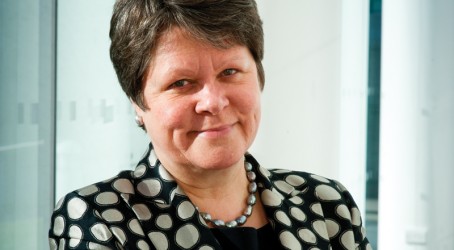Being surrounded by men all day at work could be daunting for some women. But for those who have chosen a career in engineering, it’s the norm. Figures suggest that just 7-8% of engineers are female. It’s a proportion that has proven stubbornly resistant to improvement, despite the numerous campaigns, initiatives and money thrown at the matter.
With more than 800,000 extra engineers required in the next decade, the government is now keen to make progress on the gender issue. Late last year the Department of Business, Innovation and Skills launched an enquiry into why so few women enter and stay in science, technology, engineering and mathematics professions.
But what is the day-to-day reality of working in such a male-dominated environment, and what do the women who do it think could help bring a better balance to the profession?
Alexandra Knight, senior consultant, Frazer-Nash engineering consultancy
I went to an all-girls’ school so engineering wasn’t something that was highlighted very well, but I’ve always been aware of it because my father is an engineer. I went to a summer space school about the real-world application of maths and science when I was 16, and it caught my interest.
My physics teacher was encouraging about engineering, but I remember my careers advisor wasn’t and didn’t know anything about it. People were shocked when I said I wanted to do an engineering degree. No one else at my school did this subject, so I was the odd one out.
I didn’t realise the extent of the issue until I got to university. When I started my course, there were about five girls in a year of more than 100, which was daunting at
the beginning.
I remember my confidence being knocked a lot at the start. I’d get ridiculous comments such as: “Shouldn’t you be in the English lecture down the hall?”. I quickly decided I would have to either just put up and get on with it or do something different.
Moving into work, I haven’t found that same attitude. Occasionally, I get the odd comment. But I’ve not experienced anyone taking it so seriously that they get upset. Really, it’s a bit of banter and meant in good jest – you’ve got to expect it
and joke back.
Within my company, there are very few senior women. There are only a handful at the level of line management group leader, and no women once you get to board level.

When I was starting out in my career, I found it difficult that there weren’t any female role models for me to aspire to. I think it is important to see how somebody else got to where they are, and realise it’s feasible for you to get there as well. If you see that that person has overcome the barriers, you feel that you can, too.
I’ve done various events and activities with schoolchildren to introduce girls to engineering. I always get a good response, but a lot of them assume engineering is fixing cars or washing machines.
There is stereotyping that it is a man’s job and you get your hands dirty. I try to get the message across that engineering is about designing the future and making a change for the better in the world. The girls tend to respond to that.
I don’t know whether it will ever get to the point where it is completely equal. I hope so, but I think we have still got a long way to go. I think government, employers, educators and society have the responsibility to drive the change.

Dame Professor Julia King, vice-chancellor, Aston University
I had a slightly charmed entry to industry. I was an academic till my late 30s and I went into Rolls-Royce at a senior level, which was an advantage because I was treated with a huge amount of respect. I didn’t have to fight my way to that position in the way that women joining at a younger age did.
When I got there, it did strike me that the young female design engineers could find themselves as one or two in a project hall full of 30 or 40 men. In academia you don’t notice it as much – you tend to get a better balance.
For these women, “sticking out” can be intimidating and make it much harder to ask questions. You feel conscious that everyone will remember you for being the one woman, and the one who asked a stupid question.
Rolls-Royce had a challenging intellectual style – we had fierce arguments about engineering. Winning or losing wasn’t about who you were; it was focused on
the engineering.
Lots of people thrive on that, but sometimes the people asking the questions weren’t sensitive to the fact that some women could feel exposed and vulnerable in that pressurised environment.
One of the things that I think helps hugely is strong networks for women. You find that, over time, lots of tiny, almost trivial events, chip away at you.
It’s those little instances when people don’t believe that you could possibly have the qualifications, skills or expertise to address a problem because you are a woman. Like when somebody rings up and asks to speak to Dr King, assuming I’m Dr King’s secretary.
Individually you would shrug, joke and forget about these things, but after a while they can start to get under your skin, and having another woman to complain to is helpful. Men don’t experience these things.
Sometimes it can be demoralising for young women who are climbing their way up to be slightly undermined by lots of little comments. But usually you find young women are scornful of women’s networks. They have felt in the minority at school and university and fought their way to succeed, so they question why they should join.
It’s clear that there is nothing stopping women from being able to do engineering. We have a lot of perception-changing to do. We have to get a lot more women doing science and maths at A level.
We’ve got to make sure the way that we teach engineering involves things that women are interested in. A lot of engineering gets taught around fast cars. But we know that when you have courses in biomedical engineering, you can get 50%-plus women applying.

Carol Burke, managing director, Unipart Manufacturing Group
My experience in the boardroom is not a bad one. It is a tough place whether you are a man or a woman – that’s why you have to be committed. It is about holding your own, being confident, and making sure that you are prepared.
Sometimes being a woman is a strength, but you have to make sure that other people don’t start using it as a weakness. It’s just one facet of what I am; being a professional business executive is another.
Being a woman in industry and being successful in business are difficult because of having children. To deal with the challenges, I decided company life and home life had to mould into one. I start at 6am and don’t finish until about 10pm, and it will be a mixture of work life and family life during that time, but this flexible approach works for me. That goes against the textbooks, which say “keep your home life and work life separate”. I had a successful early career, and that helped me hugely.
There clearly is an issue with being able to progress in a career if you have children. In professions such as law, where there is a much more balanced entry, there aren’t many women among the partners and senior lawyers of firms. We are going to have to start thinking outside of the box on how we make this possible for women.
I work alongside mostly men, and they also have problems in terms of family life. This idea that women carry all the problems is a fallacy. The more that men ask for in terms of a balanced life, the easier it will become for women.
We need to recognise that unless we get this right, our country is not going to be able to grow. Our challenge now is that we counter some of our issues by being as flexible as we can. One of the reasons that Japan might be entering a bad economic time is because fewer of their women work. They are closing down such huge potential within their country.
I don’t particularly enjoy being seen as a role model for women. I entered the profession because that is what I wanted to do – it was the fascination of engineering and making money. I’m not sure whether a focus on these issues is helpful.
It’s my fear that, for young people, being a woman becomes an all-encompassing part of it, when actually you need to be a good, successful engineer, just as you would need to be a good, successful medic or accountant.
Having said that, we have a problem. It’s a problem with attracting young, talented people into our profession, not just women. We need to make it possible for women in particular to do well. That is true of many sectors, not just engineering. For me, it’s a business need, not a male/female campaign.
Q&A extra: Find out what else Carol Burke had to say

Philippa Oldham, head of transport and manufacturing, Institution of Mechanical Engineers
Being a female in a male-dominated world, I will say what my views are. I’ve actually found that being a female at the table gives a different perspective.
Often I’ve found that you have to initially prove yourself, and it’s hard to say whether a male engineer would have to do that. I did get told by one university in the UK that
girls shouldn’t do engineering. But I won’t name and shame.
I’ve a number of friends who have worked in the medical and legal professions. They are more highly respected than engineers, and that is the wrong way to be. Over the years I’ve gone to Germany, the US and Canada with work, and in those countries engineers are really respected.
I feel that with engineering, there have not been role models. Girls almost don’t know that they can become an engineer, or what an engineer is, or what engineers do. It’s not only down to institutions such as ours to change that – its also down to parental support and the careers advice in schools. Even toys: if you look at adverts on television for Scalextric, they are always targeted at boys.
I think the gender issue is still early in its debate. The general perception of females having a career, having children and then going back to a career, is still in development.
I have seen a lot of women get to a certain level in their career, stop, have children and take a break. Often that means they will go back to work part-time. Throughout my career, I’ve heard several male colleagues saying that they won’t use a particular female engineer because she is part-time. They think that because she’s not there all
the time she might not be able to make meetings.
But if I look at the female engineers I’ve known who are part-time or who have altered their hours so they can still work full-time, they put in more effort and are still fantastic engineers. Sometimes they get dismissed, and that’s why they can miss out on going into the more senior levels of the profession.
I do hold out hope for mechanical engineering, but I don’t know that there will be a time when it’s 50% male and 50% female. But we can definitely get up to 20% female – that’s a more realistic target.

Moving beyond junior management: bank provides role model
One industry that has led the way in terms of gender diversity is banking. Fiona Cannon (right), director of diversity and inclusion at Lloyds Banking Group, says that despite the bank employing a large percentage of female staff, a range of issues can lead to women stalling at lower levels of responsibility. At Lloyds, 45% of managers are female, while at senior executive level the figure falls to 21%.
As with engineering, the factors holding women back include a lack of senior female role models, a lack of flexibility in terms of working hours and environments, and the decisions made early in a woman’s career to move into professional services that limit opportunities later on.
“Women tend to choose a career path based on their responsibilities, so they might move into marketing, human resources, or professional services, rather than profit or loss roles. By the time they get to the executive level, there are fewer positions in those functions,” says Cannon.
Lloyds has tackled these issues by establishing mentoring and role-model programmes, offering flexible working, and formalising and strengthening maternity leave processes.
The bank also has a talent-development programme, that identifies high-potential women in junior management positions and provides support and tailored career paths. This is the level where women can start to fall off the career ladder, in-house research has shown.
“It is not about spending additional money – it’s the way that you redirect the funding that you’ve already got,” says Cannon. The measures have been in place for two-and-a-half years, and she says she is starting to see real progress.
Promote a pioneer
If you know a pioneering woman in the engineering sector, why not put her forward for the First Women Awards, in association with Lloyds Banking Group? The awards recognise pioneering women whose achievements open opportunities for others.
To find out more, and to make a nomination for the “Engineering and manufacturing” category (supported by the Institution of Mechanical Engineers), visit www.firstwomenawards.co.uk or contact alexis.carlson@caspianmedia.com. The nomination deadline is 5 April.